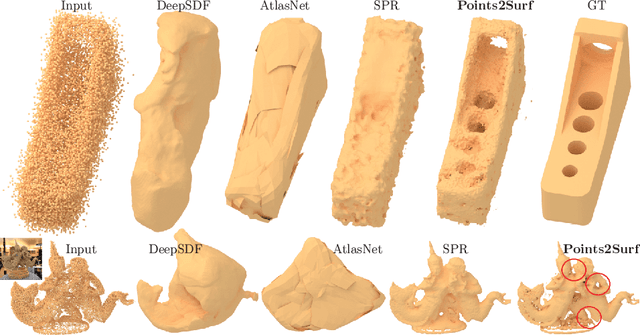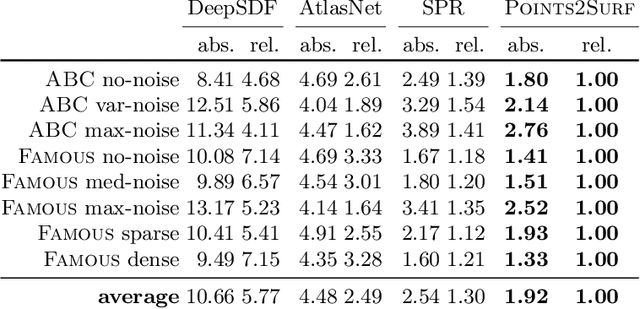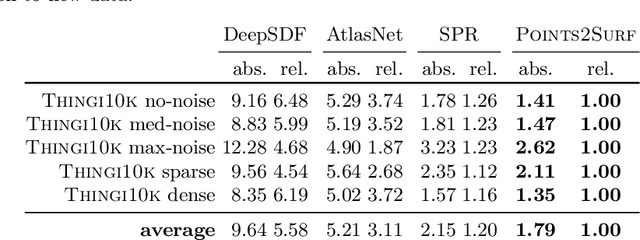Philipp Erler
PPSURF: Combining Patches and Point Convolutions for Detailed Surface Reconstruction
Jan 16, 2024Abstract:3D surface reconstruction from point clouds is a key step in areas such as content creation, archaeology, digital cultural heritage, and engineering. Current approaches either try to optimize a non-data-driven surface representation to fit the points, or learn a data-driven prior over the distribution of commonly occurring surfaces and how they correlate with potentially noisy point clouds. Data-driven methods enable robust handling of noise and typically either focus on a global or a local prior, which trade-off between robustness to noise on the global end and surface detail preservation on the local end. We propose PPSurf as a method that combines a global prior based on point convolutions and a local prior based on processing local point cloud patches. We show that this approach is robust to noise while recovering surface details more accurately than the current state-of-the-art. Our source code, pre-trained model and dataset are available at: https://github.com/cg-tuwien/ppsurf
* Published in Computer Graphics Forum (Jan 2024): https://onlinelibrary.wiley.com/doi/10.1111/cgf.15000
Points2Surf: Learning Implicit Surfaces from Point Cloud Patches
Jul 20, 2020



Abstract:A key step in any scanning-based asset creation workflow is to convert unordered point clouds to a surface. Classical methods (e.g., Poisson reconstruction) start to degrade in the presence of noisy and partial scans. Hence, deep learning based methods have recently been proposed to produce complete surfaces, even from partial scans. However, such data-driven methods struggle to generalize to new shapes with large geometric and topological variations. We present Points2Surf, a novel patch-based learning framework that produces accurate surfaces directly from raw scans without normals. Learning a prior over a combination of detailed local patches and coarse global information improves generalization performance and reconstruction accuracy. Our extensive comparison on both synthetic and real data demonstrates a clear advantage of our method over state-of-the-art alternatives on previously unseen classes (on average, Points2Surf brings down reconstruction error by 30\% over SPR and by 270\%+ over deep learning based SotA methods) at the cost of longer computation times and a slight increase in small-scale topological noise in some cases. Our source code, pre-trained model, and dataset are available on: https://github.com/ErlerPhilipp/points2surf
 Add to Chrome
Add to Chrome Add to Firefox
Add to Firefox Add to Edge
Add to Edge